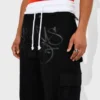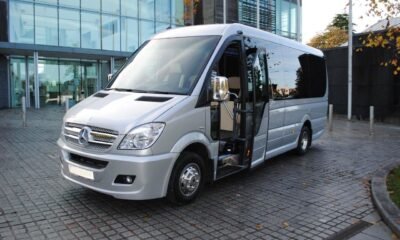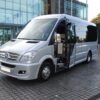Business
Essential DJ Equipment for Beginners A Complete Guide
Are you looking to dive into the world of DJing but unsure where to start? Whether you aim to perform at parties or create mixes at home, having the right equipment is essential. For a beginner, it might feel overwhelming to figure out what you need, especially when options like Hire Rent active speakers for sound systems come into play. Don’t worry; this guide will simplify the essentials and help you set up your DJ journey with confidence.
1. DJ Controllers: The Heart of Your Setup
A DJ controller is often the first piece of equipment beginners purchase. These all-in-one devices mimic the traditional turntables and mixers in a more compact and affordable format. With features like jog wheels, pitch controls, and pre-mapped buttons, they make mixing tracks easier.
Recommended DJ Controllers for Beginners
- Pioneer DDJ-400: Ideal for entry-level DJs, it offers intuitive controls and compatibility with Rekordbox software.
- Numark Mixtrack Pro FX: Affordable yet versatile, it comes with built-in effects and great durability.
- Hercules DJControl Inpulse 500: A budget-friendly option that teaches mixing techniques through built-in light guidance.
2. A Reliable Laptop or Computer
Your laptop or computer will serve as the brain of your DJ setup. It’s where your music library is stored and the software runs. Look for a machine with:
- A fast processor for seamless performance.
- Sufficient RAM (8GB minimum) to handle large track libraries.
- Reliable storage, such as SSDs, for quick access to files.
Best DJ Software for Beginners
- Serato DJ Lite: Perfect for beginners, with user-friendly features and an easy learning curve.
- Rekordbox DJ: Great for those planning to perform live, offering advanced features for free.
- VirtualDJ: Versatile software that works with almost any controller.
3. Active Speakers: The Power Behind the Sound
Speakers play a critical role in delivering your music to an audience. For beginners, active speakers are a great choice as they have built-in amplifiers, eliminating the need for external amps. If you’re starting small or want to save money, you can Hire Rent active speakers instead of buying.
Features to Look For in Active Speakers
- Portability: Lightweight and easy to transport.
- Sound Clarity: Ensures your mixes are crisp and audible.
- Power Output: Look for speakers with at least 300 watts for small venues.
Popular options include the Yamaha DXR10 and the JBL EON610, known for their balance of power and sound quality.
4. Headphones: Precision Listening
A good pair of headphones is essential for cueing tracks and ensuring smooth transitions. DJ headphones differ from regular ones as they are designed for accurate sound isolation and durability.
Recommended Headphones for Beginners
- Audio-Technica ATH-M50x: Excellent sound quality and comfortable for long sessions.
- Pioneer DJ HDJ-CUE1: Budget-friendly and stylish, with decent sound isolation.
- Sennheiser HD 25: Lightweight yet robust, ideal for live environments.
5. External Storage: Backup Your Music
As a DJ, your music library is your most valuable asset. Keeping a backup of your tracks ensures you’re prepared for any technical glitches. Invest in external hard drives or cloud storage solutions to keep your library safe and accessible.
Tips for Organizing Your Music
- Create playlists based on genres or events.
- Tag tracks with BPM (beats per minute) and key information for easier mixing.
- Regularly update your library with fresh music to stay relevant.
6. Microphones: For Engagement and Announcements
If you’re planning to host events or engage with your audience, a microphone is a handy addition to your setup. Wireless microphones offer mobility, while wired ones are reliable and cost-effective.
Popular Microphones for DJs
- Shure SM58: Known for durability and clear audio.
- Rode Wireless GO II: A compact, wireless option for dynamic movement.
- Audio-Technica ATR2100x: Versatile and budget-friendly.
7. Cables and Accessories: The Unsung Heroes
Even the most advanced DJ setup can fail without the right cables and accessories. Essential items include:
- XLR and RCA cables: For connecting speakers and mixers.
- Power strips: Ensure you have enough outlets.
- Laptop stands: Keep your computer at eye level for better ergonomics.
8. Lighting for Ambiance
Once you’ve nailed your audio setup, consider adding lighting to enhance your performance. Simple LED lights or portable strobes can transform the vibe of your gigs.
Beginner-Friendly Lighting Options
- Chauvet DJ GigBAR 2: An all-in-one lighting system that’s easy to use.
- ADJ Starburst: A compact and fun option for small events.
- Novostella Smart Flood Lights: Affordable and customizable with app controls.
9. Practice, Learn, and Grow
Having the right equipment is just the beginning. The key to becoming a great DJ lies in constant practice and learning. Here are some tips to help you grow:
- Watch Tutorials: Platforms like YouTube offer countless free tutorials for beginners.
- Experiment: Try mixing different genres to develop your style.
- Perform Live: Start with small gigs to gain confidence and experience.
10. Renting vs. Buying Equipment
For beginners unsure about long-term commitments, renting DJ gear is a smart option. Services offering Hire Rent active speakers or controllers allow you to test equipment before making a purchase. This approach saves money while helping you find the perfect setup.
Final Thoughts
Starting your DJ journey can be exciting and rewarding with the right equipment. By investing in essentials like DJ controllers, laptops, active speakers, and headphones, you’re setting a strong foundation for your craft. Don’t forget to explore rental options like Hire Rent active speakers to stay flexible and cost-effective.

















